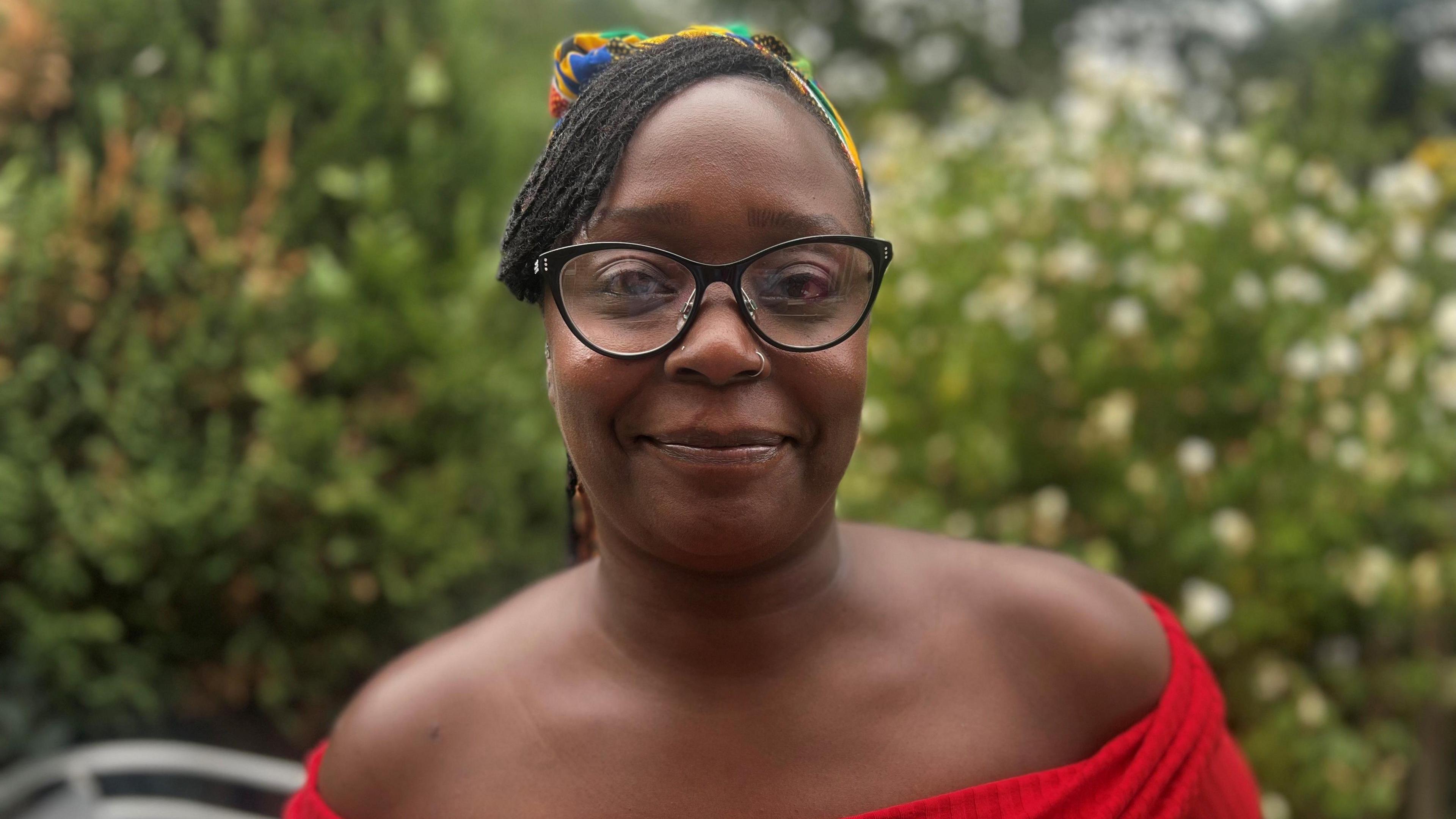Barbers helping to tackle stigma around HIV
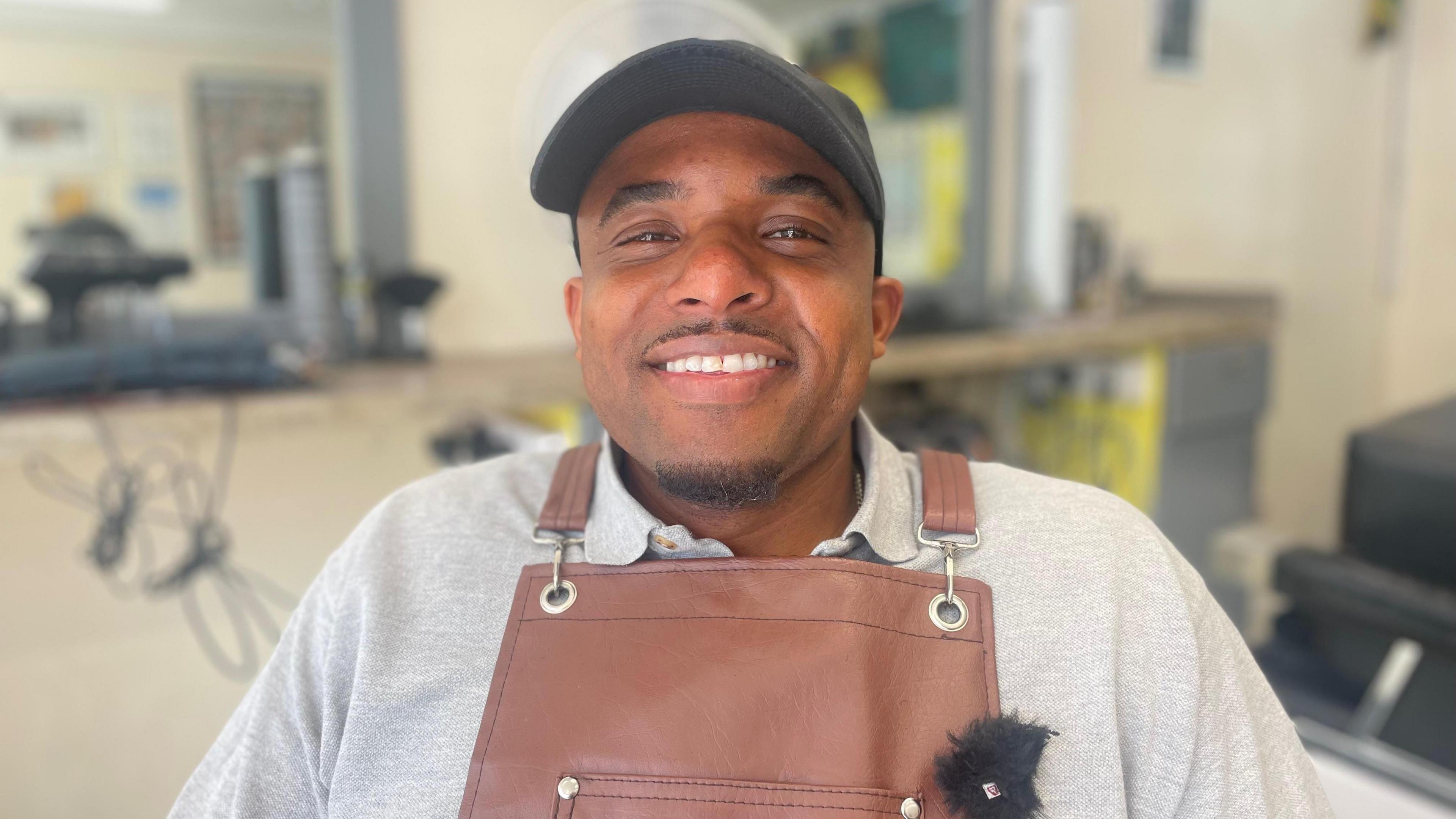
O'Neil 'Biggz' Brown said his barbershop provides a safe space for people to talk
- Published
Barbers and hairdressers are encouraging people to talk about sexual transmitted diseases as increasing numbers of people in Bristol are living with HIV.
Bristol has about 1,000 people living with the disease, with an increased rate of late diagnosis, according to NHS statistics.
Now some business are being recruited by a community project to help raise awareness about prevention, testing and where to get help.
O'Neil 'Biggz' Brown, who runs Biggz Barbershop in Fishponds, said: "We're taught ways to speak to customers, that we can break down any barriers or defence systems, we can gently speak to them and say 'listen, you don't need to be afraid to talk about sexual health'."
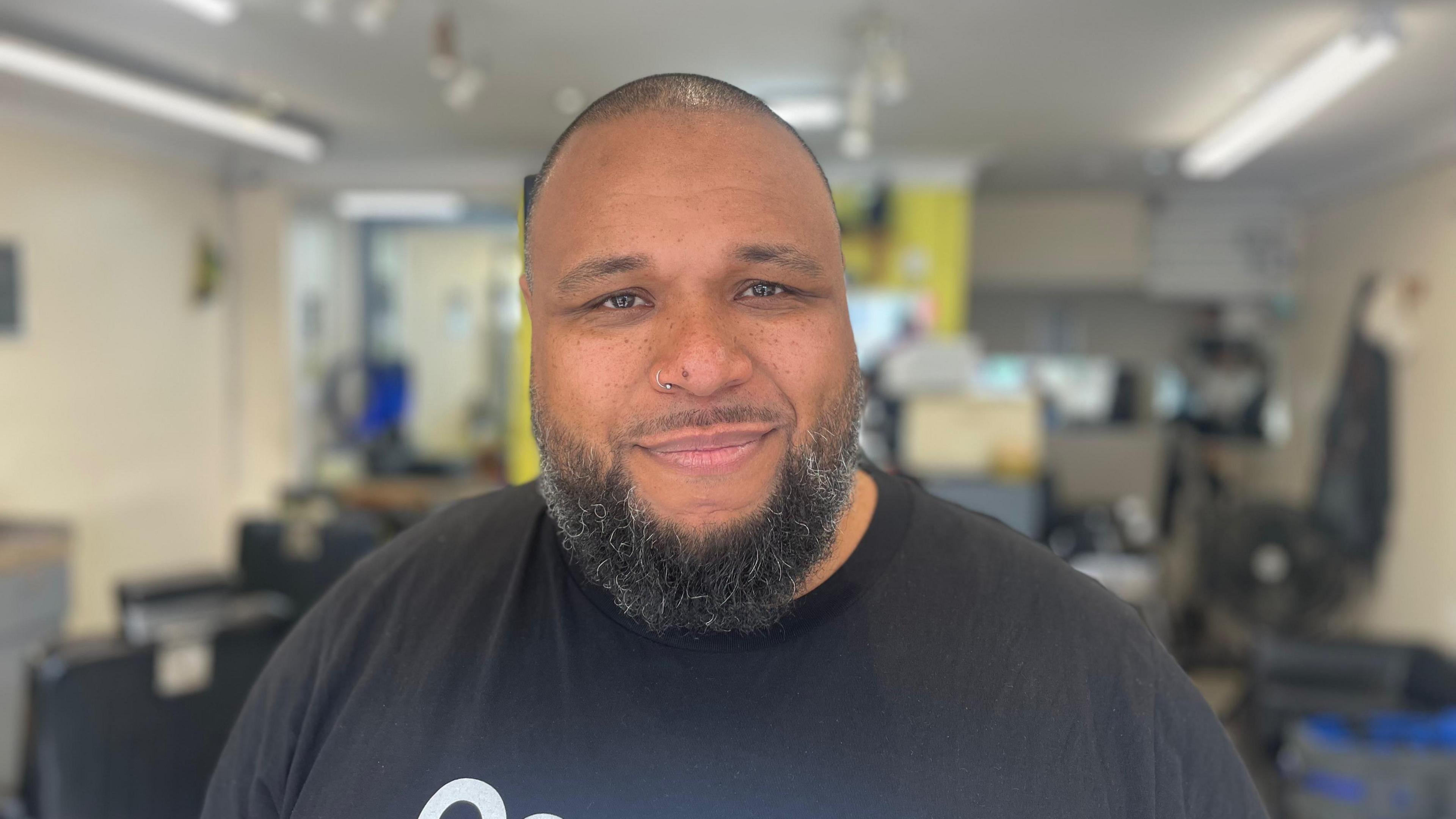
Matthew Wilson said it is important to remember sexual health is not a taboo
Organised by Common Ambition Bristol (CAB) - which works with African and Caribbean heritage communities to reduce HIV stigma and increase testing - the project has developed partnerships with 36 businesses in north east Bristol, including barbershops, hairdressers, cafes and restaurants.
African and Caribbean heritage people are often being diagnosed "late" in Bristol, which makes treatment harder, according to a report, external by Bristol City Council and the Bristol, North Somerset and South Gloucestershire Integrated Care Board.
CAB says that people from these communities often have problems accessing HIV and sexual health services, which can mean they are unaware they are infected and therefore more likely to pass it on.
Matthew Wilson, CAB project coordinator, said the barbers or hairdressers is a "rare" space where people feel at ease to talk about the issue and pick up advice.
"We have one of the highest rates of STI's in the south west and are in the top third of HIV prevalence in the UK," he said.
"What we know is the rate of HIV in Black, African and Caribbean heritage people is also higher than the national average.
"For a long time there has been an awareness that services haven't been doing enough to inform and protect people from our communities and there wasn't enough testing happening and a lack of information.
"It's really important that we work with the community and go out there to take our message to them."
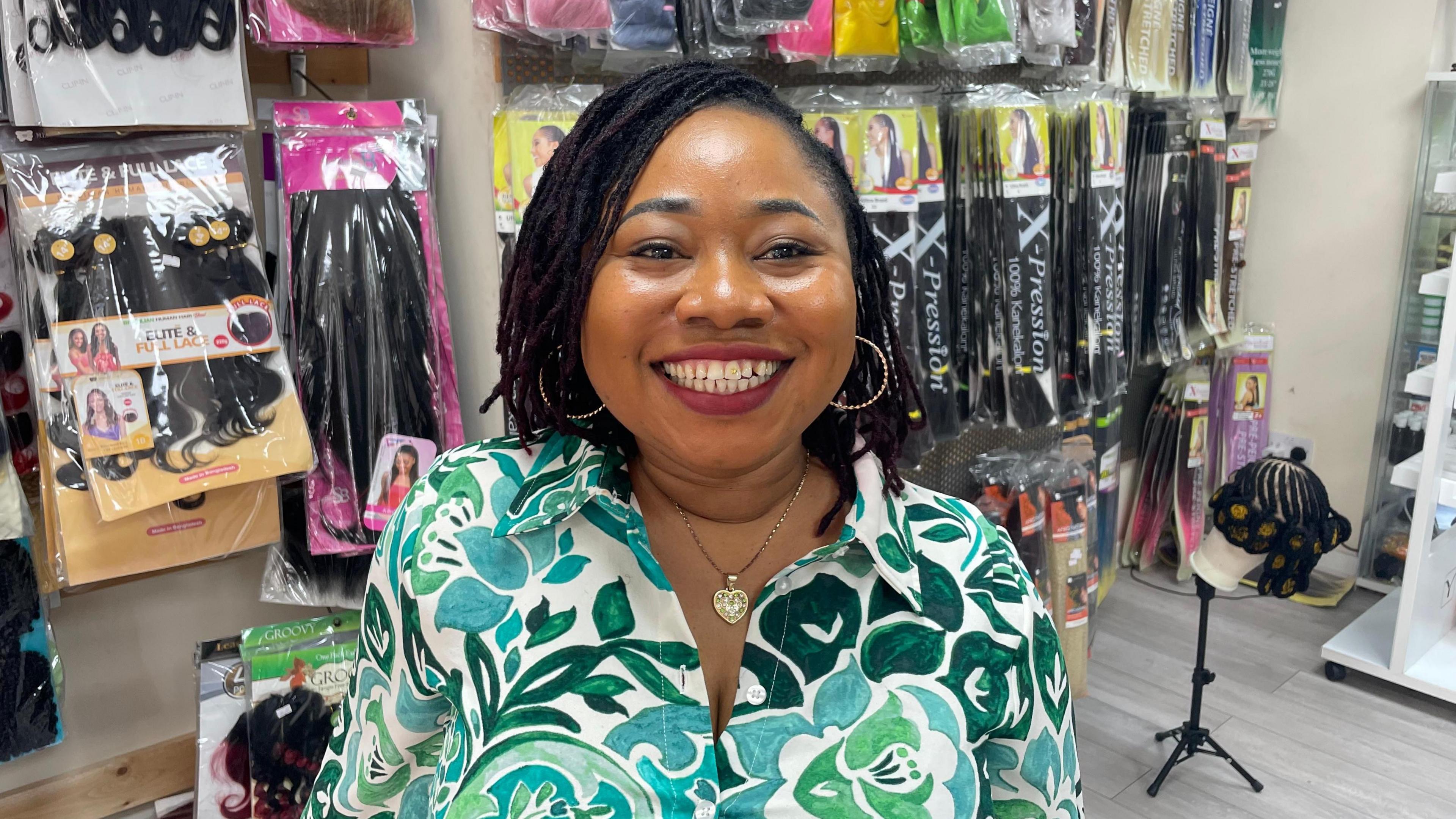
Victoria Owusu-Nimoh is another CAB partner and runs Vicky Jubilee hairdressers
As well as training business owners about HIV and how to talk to their customers, CAB leave free HIV test kits, condoms, and leaflets on sexually transmitted diseases in each partnership site.
Victoria Owusu-Nimoh, who runs Vicky Jubilee hairdressers in Fishponds, said the business is somewhere people feel open to talking.
"Sometimes people are very nervous to go to the hospital to talk to the doctors, but when it comes to this shop and where the items [kits/leaflets] are, you feel free to pick whatever items you need – it's really helping the community," she said
Mr Brown has been acting as a CAB partner for the last two years.
"CAB have made a big impact in our lives, in terms of learning about sexual health and now we're not afraid to speak to our customers, friends or relatives," he said.
"Many of those in our community when they hear about HIV, they think it's a death sentence which through education we now realise it's not."
Mr Wilson said it is "really important people know that people living with HIV can live long healthy lives".
"We wanted to include the community in all parts of the work we do - they help us make decisions, evaluate how well we're doing and I think that is why we've been so successful."
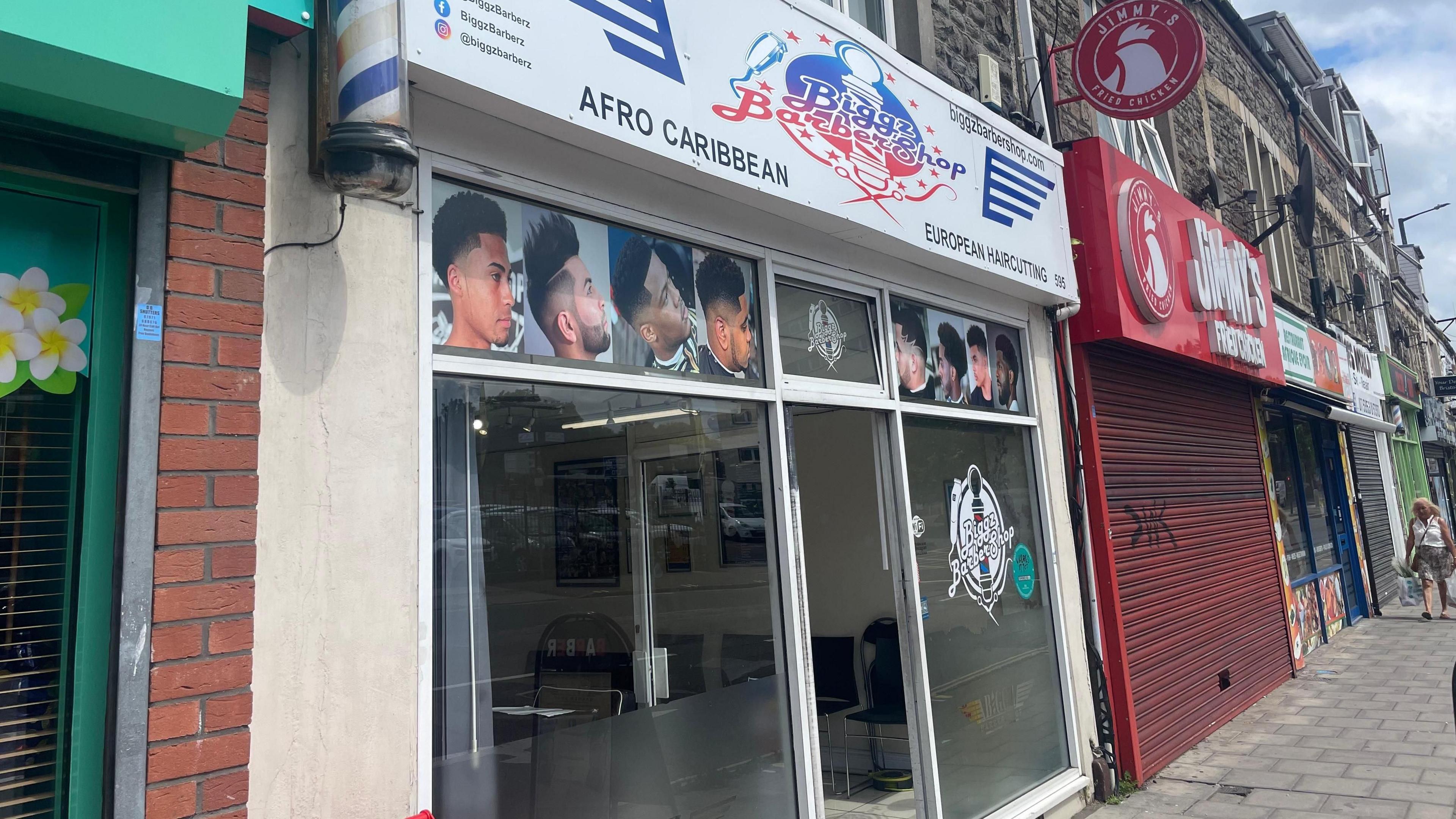
Biggz Barbershop in Fishponds is one of the businesses partnered with CAB
The city council has also launched its first two free clinics especially for African and Caribbean Heritage people, run by CAB and NHS partners, in Montpellier and Easton.
Dr Joanna Copping, consultant in public health medicine at Bristol City Council, said while figures show there has been an increase, external in HIV cases in Bristol, many of those are people who have already been diagnosed abroad, who now happen to be living in the city.
"If we look at the new cases of people who have been diagnosed with HIV within Bristol, our numbers are relatively low and have been decreasing over the last decade," she said.
"While we do have a relatively small number of new cases, what we do have is a higher rate of late diagnosis," she said.
"Sometimes people think HIV isn't around anymore but often it is an issue around stigma and choice not to get tested."
That is why hairdressers like Ms Owusu-Nimoh say they are happy to help break down that stigma and get people tested.
"My customers come in asking if the resources are gone – it's making a big difference to the community."
Get in touch
Tell us which stories we should cover in Bristol
Follow BBC Bristol on Facebook, external, X, external and Instagram, external. Send your story ideas to us on email or via WhatsApp on 0800 313 4630.
Related topics
- Published24 November 2024
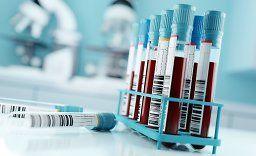
- Published1 December 2024
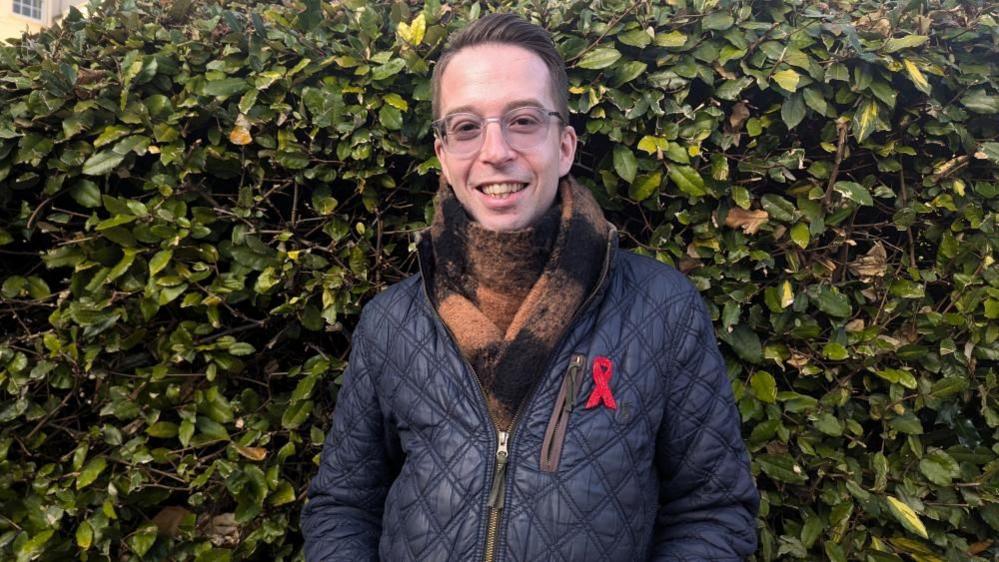
- Published9 September
